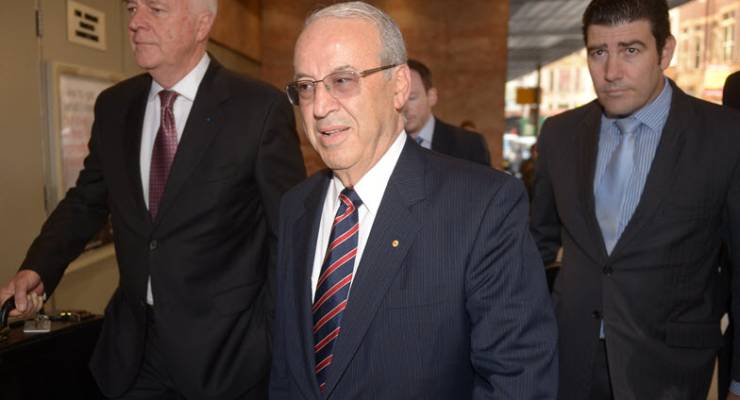
The economy struggles, again
It’s another bad day for global markets. Wall Street had its worst day since the Black Monday crash of 1987, while ASX futures are down 4.1%.
According to a report in The Australian Financial Review, most world airlines could be bankrupt by the end of May. Overnight, Scandinavian Airlines announced it was suspending commercial flights and cutting 90% of its staff (10,000 jobs). Qantas and Jetstar announced they would cut 90% of their international capacity and 60% of their domestic capacity until the end of May.
It’s that deterioration in global markets and sluggish economic activity that have continued to raise fears that we’re at the beginning of a recession.
Now, with barely any room for another interest rate cut, the Reserve Bank looks likely to move towards quantitative easing, essentially printing more money to buy government bonds.
This would mirror steps taken by central banks in Europe and the United States following the global financial crisis.
Eddie Obeid trial halted… for now
The virus has put an already stretched legal system into a bit of a tailspin.
Over the last few days, the states have moved to indefinitely suspend new jury trials. Today, the High Court announced it will not be sitting until June, although some urgent matters would be heard via video link. Most ongoing trials are set to continue, with one notable exception — that involving disgraced former NSW Labor ministers Eddie Obeid and Ian Macdonald.
Justice Elizabeth Fullerton, presiding in a judge-only trial, suspended proceedings for two weeks over concerns about COVID-19. The trial is over allegations that Obeid and Macdonald conspired for the latter to engage in misconduct as a minister over a mining exploration licence.
Elsewhere this morning the Sydney registry of the Family Court and Federal Circuit Court shut down, after a practitioner tested positive.
A long closure of those courts could be disastrous — the family law system is already notoriously backlogged, and cases often involve victims of domestic violence.
We are not running out of drugs
The good news is that Australia is currently not running out of medication, the Therapeutic Goods Administration says. Stocks of drugs for chronic illnesses like asthma medication and insulin are not running low, according to statements
As shortages at a particular local pharmacy are not considered evidence of a nationwide shortage, health organisations have warned against stockpiling and panic-buying of key medication, saying this could make it harder for vulnerable people to access the drugs they need.
“Stockpiling places additional stress on local pharmacies and other patients who may not be able to access much needed medication,” Asthma Australia CEO Michele Goldman said.
“Keep in mind, other people may not have the means to travel to other pharmacies, such as those who are elderly or have a disability.”
A report in The Guardian last week said rural pharmacies were struggling to cope with heightened demand for medication.
No relief for the arts
Dark Mofo. The Sydney Writers Festival. Vivid. Blues Fest. Big arts festivals across the country have been forced to shut down. Museums are closing their doors to the public, leaving thousands out of work.
But it’s the smaller events, the musicians whose entire income comes from casual gigs in bars and restaurants, and the writers relying on panel events who are set to struggle the most.
According to I Lost My Gig, a website crowdsourcing numbers on the extent of losses in the arts sector, there’s already been $47 million worth of lost income, 190,000 jobs impacted and 20,000 events cancelled.
Representatives from the sector are set to meet with Communications Minister Paul Fletcher today. But a release put out by Fletcher yesterday was perhaps unlikely to offer the sector adequate assurance.
Fletcher said that while eligible small and medium arts businesses could access part of the federal government’s funding package, any insurance for cancelled events over 500 people would be a matter for the states.
Yo String, where’s the vaccine?
Overnight, British actor Idris Elba — best known as a perennial contender for the next James Bond and for his role as Stringer Bell in The Wire — announced he had coronavirus.
Elba is just the latest famous person to get the virus, joining the ranks of Tom Hanks (recently released from hospital in the Gold Coast), Rita Wilson, Sophie Trudeau (wife of Canadian Prime Minister Justin) and our very own Peter Dutton.








The Arts and Sports could be rescued by the quantitative easing being planned. One problem with the Rudd stimulus was that people failed to spend it all. A problem this time round is that once driven into indoor living, people will be too frightened or slothful to emerge again. This time the stimulus could be distributed as credit for entertainment tickets. Instead of being banked or buying imported goods, it would be buying services and injecting liquidity directly into the economy. At the same time it would be getting an unfit people out of their burrows, inspiring them to activities like the Arts and Sports.